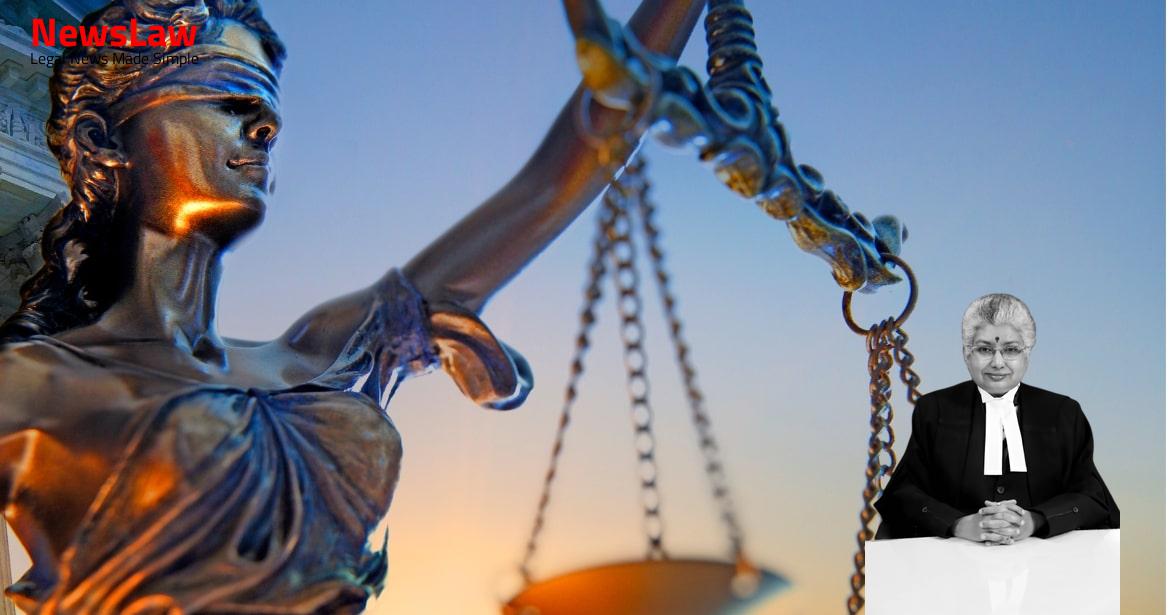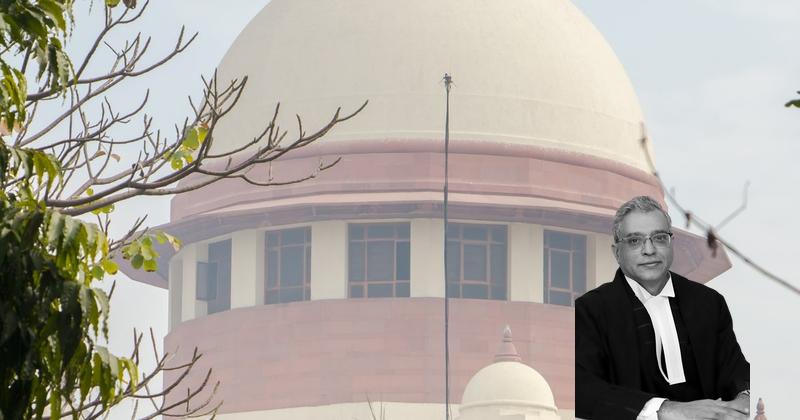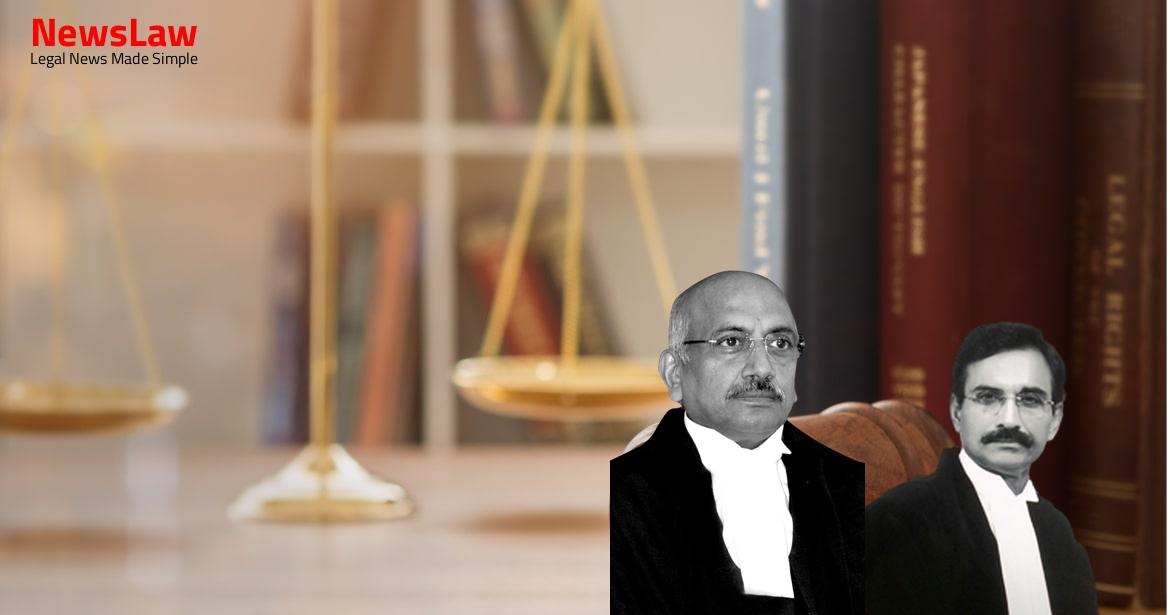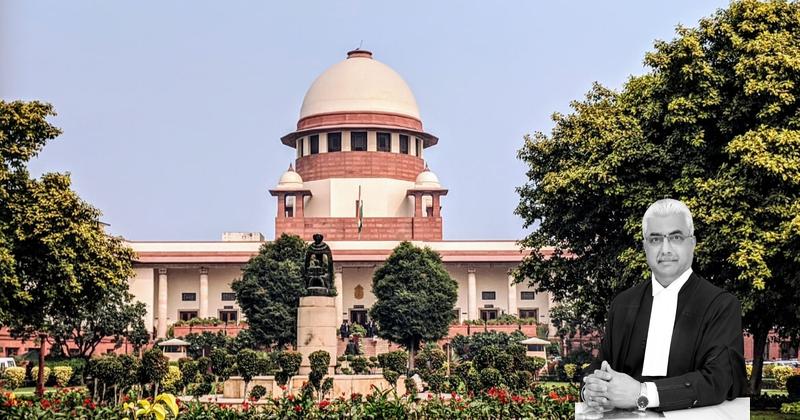Delve into the intricacies of contract law as the court examines the transferability of contractual obligations in a recent case. Discover the implications of personal rights and duties in contracts, and how the court’s legal analysis sheds light on this complex aspect of law.
Facts
- The complainants pursued legal recourse under the Consumer Protection Act by filing Complaint No. 184 of 2005 before the District Consumer Forum, Kolhapur.
- The District Forum found the opposite party liable to pay the complainants varying amounts along with interest rates.
- Both parties challenged the District Forum’s order before the State Commission, which partly modified the order and upheld certain directions for payment.
- The State Commission relied on clauses of the Development Agreement to hold the opposite party responsible for incomplete construction and instructed them to fulfill specific obligations.
- Further legal proceedings took place resulting in appeals filed by both parties before the NCDRC.
- During the NCDRC proceedings, the original opposite party passed away, and his legal representatives were brought on record as appellants.
- The NCDRC dismissed review applications while affirming its earlier order and granting the appellants the liberty to seek a review before the NCDRC.
- The NCDRC upheld the order of payment of 1.65 lakhs and 1.85 lakhs with interest as directed by the District Forum
- The NCDRC upheld the directions issued by the State Commission to the developer
- The NCDRC held that the obligations of the developer under the Development Agreement continue even after the developer’s death and must be fulfilled by the legal heirs
- The NCDRC disagreed with the finding of the State Commission regarding time-barred transactions and considered the claims as part of a continuous cause of action
- The NCDRC upheld the directions of the State Commission related to Completion Certificate, Conveyance Deed, and Electricity Connection
Also Read: Court’s Legal Analysis on Specific Performance in Tribal Land Transfer Case
Issue
- Upon the demise of the original opposite party, the obligations imposed personally on him would cease to exist.
- These obligations would not extend to his legal representatives or successors.
Also Read: Clarification on Reservation for Scheduled Tribes in Union Territory
Arguments
- The legal representatives of the original opposite party were brought on record after his death during the pendency of the revision preferred by him.
- The NCDRC held that the legal representatives are liable for all monetary payments and directions issued by the lower forums which were modified by the NCDRC.
- The NCDRC rejected the contention that the legal representatives are not accountable for the liabilities under the agreement after the death of the original owner.
- It was emphasized that even after the death of the developer, the clauses of the development agreement and the rights of the complainant are not rendered redundant.
- The NCDRC stated that execution of the provisions of the development agreement must be sought by the legal heirs of the developer only.
- The legal representatives of the opposite party, being aggrieved by this reasoning, have filed appeals.
- The complainants were entitled to eight residential flats as per the Development Agreement.
- There were various terms and conditions in the Agreement imposing obligations on the original opposite party.
- The petitioner’s counsel argued that the legal representatives cannot fulfill personal directions issued against the deceased original opposite party.
- The legal representatives should only be liable for compensatory payments, not fulfilling other directions which were personal to the deceased.
- The original opposite party had the skills and expertise as a developer to comply with the directions, which his legal representatives may not possess.
- The legal representatives cannot be compelled to comply with the directions as they are not continuing the proprietorship concern of the deceased opposite party.
- The directions include construction of a compound wall for separate access, obtaining and handing over completion certificates, executing conveyance deeds, and providing electricity connections among others.
- The complainants’ counsel argued that the legal representatives should also comply with the other obligations in the Development Agreement.
- The NCDRC’s direction was to ensure that the legal representatives take steps to comply with all the directions, not just the compensatory payments.
- The legal representatives are willing to make the payments but cannot fulfill the personal directions issued against the deceased original opposite party.
Also Read: Analysis of Tax Exemption for Enemy Properties
Analysis
- Personal rights and duties in contracts are not inheritable or transferable.
- Legal representatives of a deceased individual are only liable to the extent of the estate they inherit.
- Contractual obligations that involve personal skills or expertise of the promisor cannot be imposed on their legal representatives after the promisor’s demise.
- Personal rights are elements of well-being and are distinct from proprietary rights.
- Proprietorship firms are businesses owned and controlled by one person.
- A contract involving personal obligations ends on the death of either party unless specified otherwise.
- Legal representatives are liable for debts of the deceased only to the extent of the estate inherited.
- The estate of a deceased person becomes liable, and legal representatives must discharge their liability within that scope.
- Certain contractual obligations, like those dependent on individual skills, end upon the demise of the sole proprietor and cannot be passed on to legal heirs.
- The legal representatives of a deceased can employ a competent person to fulfill contractual obligations if necessary.
- A proprietary concern is not a company and is not a separate legal entity.
- Personal rights are not valuable in monetary terms.
- Proprietary rights are the elements of wealth for man.
- Legal representatives are liable only to the extent of the property of the deceased which has come to their hands and has not been disposed of.
- Proprietary rights have economic or monetary value and avail against a person upon whom lies the correlative duty.
- Legal representatives of a deceased person represent the estate of the deceased in legal proceedings and are bound to satisfy decrees to the extent of the deceased’s property in their possession.
- Rights and duties in contracts are personal to the parties involved and may not be transferred to legal representatives upon death.
- Injunction is a judicial mandate in personam to do or refrain from doing something based on equity principles.
- Directions to pay money are not considered injunctions.
- Promises in a contract must be performed unless excused by law.
- Promises bind representatives of promisors after their death unless stated otherwise in the contract.
- If it was the intention that a promise in a contract be performed by the promisor, then the promisor must perform it.
- Section 306 of the Indian Contract Act states that demands and rights of actions of or against a deceased person survive for their executors or administrators.
- Exceptions to survival of demands and rights include causes of action for defamation, assault, or personal injuries not causing death, and cases where relief sought post-death would be nugatory.
- Sections 37 and 40 of the Indian Contract Act deal with the obligations of parties to contracts.
- Decree for preventive injunction can be executed against legal representatives of deceased judgment-debtor if related to property or runs with property and there is a threat from such representatives.
- Legal representatives not liable to discharge obligations of deceased in personal capacity.
- Orders of NCDRC, State Commission, and District Forum set aside in this regard.
Decision
- Parties to bear their respective costs.
- Appeals allowed.
- Payment to be made by legal representatives from the estate of the deceased opposite party if not already satisfied.
Case Title: VINAYAK PURSHOTTAM DUBE DECEASED THROUGH LRS. Vs. JAYASHREE PADMAKAR BHAT (2024 INSC 159)
Case Number: C.A. No.-007768-007769 / 2023



